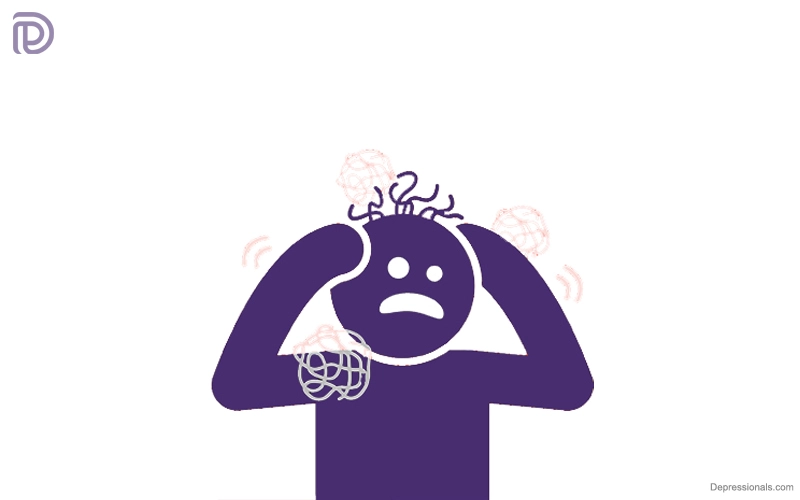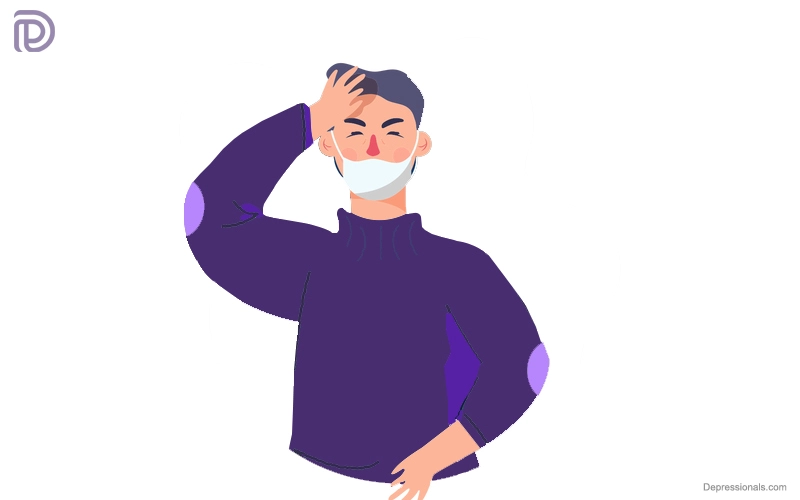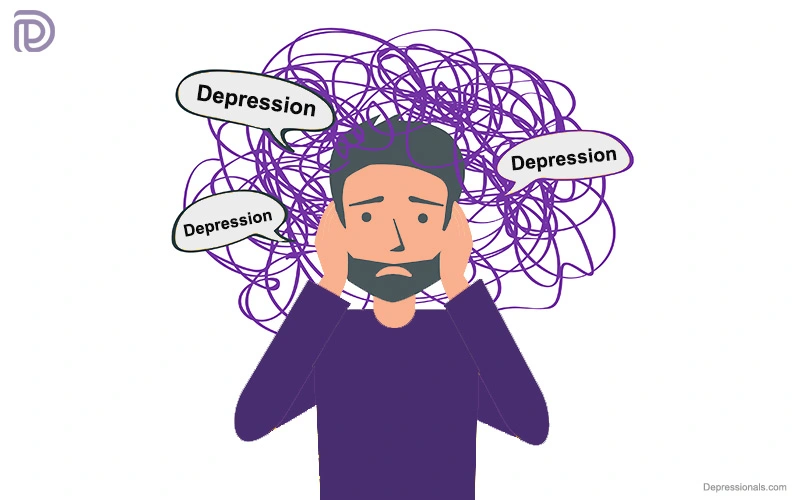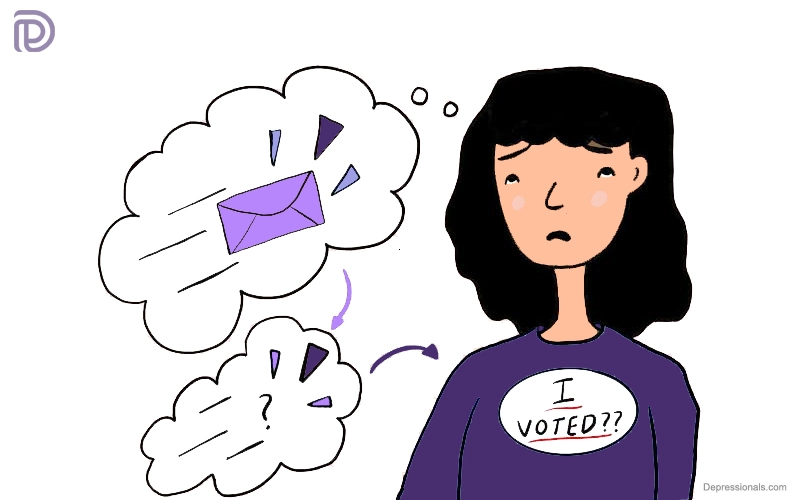Substance/medication-induced psychotic disorder is also known as alcohol-induced psychosis, drug-induced psychosis and toxic psychosis. The condition occurs when an individual experiences hallucinations or delusions within a month of using or withdrawing from prescribed drugs, illegal drugs or alcohol.
In the Diagnostic and Statistical Manual (DSM-5), it is estimated that 7 to 25% of patients treated for their first psychotic episode have substance/medication-induced psychotic disorder.
There are many treatment options and resources available to you or a loved one experiencing symptoms of substance/medication-induced psychotic disorder.
Related: Tobacco Use Disorder
Symptoms
Delusions, hallucinations or both can be a symptom of substance/medication-induced psychosis. The people who experience these symptoms might or might not be able to determine whether their hallucinations and/or delusions are real.
Delusions
Delusions are false beliefs and thoughts. There are several types of delusions:
- Persecutory: A feeling that someone, including an organization, is out to snag you or is spying on you.
- Grandiose: Belief that you are better than others, you are exceptional, special and gifted.
- Referential: You believe that signals from individuals and the environment communicate with you through hidden meanings.
- Erotomanic: Belief that you are in love with someone or multiple people despite contrary evidence to the contrary.
- Nihilistic: Imagining that something terrible is going to happen.
- Somatic: The belief that you have a medical problem.
As an example of a persecutory delusion, “my former company is monitoring my every step and is out to destroy me.” As an example of an erotomanic delusion, “Tom Hanks loves me madly.”
Hallucinations
Hallucinations occur when you experience something that is not based on reality through one or more of your senses.
Hallucinations caused by drugs and/or alcohol do not count as a diagnostic symptom for substance/medication-induced psychosis.
There are several types of hallucinations, including:
- Auditory: A sound or voice that doesn’t really exist.
- Visual: It’s hard to tell what is real and what isn’t.
- Olfactory: Being able to smell scents that only you can smell.
- Tactile: You feel touched even though you do not have anyone or anything on you.
- Gustatory: Trying something when you don’t have anything in your mouth.
For instance, when an individual experiences an auditory hallucination, they may hear a voice telling them to run or that they are being followed. When someone has a visual hallucination, they may see someone following them who really isn’t there.
Related: Alcohol Use Disorder
Do you know how long it lasts?
Various factors, including the individual’s medical history, when a particular substance was consumed, and how much they consumed, can affect how long they may experience substance/medication-induced psychosis symptoms.
Other substances may produce symptoms that last for weeks after they are eliminated from the body, or the symptoms may decrease and stop shortly after removal.
It may take up to a week for individuals taking certain pain medications to recover from the effects of substances and medications that cause psychosis.
It is possible for people taking amphetamines, such as methamphetamine, to experience symptoms for weeks at a time. The use of amphetamine is also linked to schizophrenia in some patients (more persistent symptoms of psychosis).
A study of those who were diagnosed with substance-induced psychosis later developed schizophrenia, which was reported to affect 46% of those with cannabis or stimulant use disorder. Patients who suffer from the cannabis-use disorder have an increased risk of developing long-term symptoms. About half of the other individuals in the study only experienced symptoms for a brief period.
Related: How to Get Out of a Depressive Episode
Diagnosis
An individual must experience symptoms that significantly impact their quality of life in order to be diagnosed with substance or medication-induced psychotic disorder.
Even though it is sometimes difficult to distinguish substance/medication-induced psychosis from schizophrenia spectrum disorder and other psychotic disorders, there are some key factors to remember.
With substance/medication-induced psychosis:
- Symptoms usually appear after one month of addiction or withdrawal from drugs, alcohol or both.
- No psychotic symptoms are noted before using or withdrawing from drugs.
- Symptoms usually last less than a month.
- Withdrawal usually reduces symptoms.
- Most individuals who suffer from schizophrenia spectrum or other psychotic disorders do not experience disorganized speech or behavior or diminished emotion.
Related: Depression in Teenage
Onset during intoxication
When certain substances are ingested, symptoms of substance/medication-induced psychotic disorder can appear almost immediately.
An individual’s symptoms are diagnosed by determining if they began while the substance was still in the individual’s body. When the onset occurs during intoxication, it is called a case of onset during intoxication.
Onset During Withdrawal
The withdrawal symptoms of substance/medication-induced psychosis can also occur.
It is important to ensure that additional mental disorders have not been ruled out by monitoring how long your symptoms persist.
You may be asked for more information if symptoms last longer than a month and you have cleared your body of the substance. Substance-induced mood disorders, such as chemical dependency, may be more appropriate based on your symptoms.
Causes
In many cases, substance use disorder is a co-occurrence with mental health disorders. While substances do not directly cause substance- or medication-induced psychosis, certain substances can trigger psychosis in people who are at a greater risk for it.
One longitudinal study found that people with substance-induced psychotic disorders from marijuana, opiates, stimulants, or multiple drugs presented with the following risk factors:
- Being male
- 30 years of age or younger
- Being mentally ill
Consistently having substance-induced psychoses, these individuals were at an increased risk of schizophrenia in the future.
Psychoactive substances
There are a wide variety of psychoactive substances that can trigger substance-induced psychosis, including:
- Alcohol
- Cannabis
- Phencyclidine (PCP)
- Hallucinogens
- Inhalants
- Sedatives
- Hypnotics
- Amphetamines
- Stimulants
Related: Inhalant Use Disorder
Medications
Several medications can trigger substance/medication-induced psychosis:
- Analgesics
- Anticholinergics
- Antiepileptics
- Antidepressants
- Antiparkinsonian medication
- Steroids
- Muscle relaxants
- Disulfiram
Treatment
The type and severity of treatment for substance/medication-induced psychosis will vary based on the specific patient. Most patients can be treated by stopping the trigger substance and closely monitoring them in a safe environment. Treatment may be more intensive for different substances, such as alcohol.
Taking the substance out of the patient’s system (acutely) is important, but it’s equally significant to address any mental health conditions underlying the substance use (long-term). Individuals can be prevented from experiencing a future substance/medication-induced psychosis by combining long-term and acute care.
Related: How to Overcome Depression
Medication
It is possible to use medications to reduce the symptoms of substance/medication-induced psychosis and stabilize the individual’s mood. Some possible medications are:
- Benzodiazepines
- Selective serotonin reuptake inhibitors (SSRIs)
- Antipsychotics
Psychotherapy
The longer you wait until you receive treatment for any underlying mental health conditions, the greater the possibility of experiencing another drug/medication-induced psychosis.
The following treatments may be considered:
- Cognitive-behavioral therapy (CBT)
- Drug and alcohol rehab inpatient programs
- Outpatient treatment for drug and/or alcohol abuse
- Eye movement desensitization and reprocessing (EMDR)
- Dialectical behavior therapy (DBT)
- Group therapy
Related: How to Help Someone with Depression
Alcohol-induced psychotic disorder considerations
It may be necessary to monitor alcohol withdrawal more closely than other substances and medications. A person with delirium tremens (DTs), symptoms of alcohol-induced psychosis, and bodily function failure may suffer a serious case of alcohol-induced psychosis, which can be fatal.
You may be able to receive treatment from:
- Testing and monitoring while you are in the hospital
- Testing for liver disease, replenishing electrolytes and stabilizing vitals
- If necessary, antipsychotics or benzodiazepines can be used to calm the patient
- Monitoring and evaluation of suicide
Inpatient or outpatient treatment can be extremely helpful after withdrawal is complete and the patient has been stabilized. Psychotherapy may be ineffective without a support group.
Coping
Ideally, prioritize self-care if you or someone you love is experiencing symptoms of psychosis that have been brought on by drugs or medication.
You can also seek professional help:
- Reduce stress by practicing mindfulness
- Ground yourself through breathing exercises
- Take time to decompress and watch out for caregiver fatigue
- Share your feelings with trusted family and friends
- Research substances or medications that can cause psychosis
Check your nearest: Mental Help Resources
Conclusion
Psychosis symptoms can feel terrifying, but if they are related to a substance or medication, they can be addressed. If you or a loved one are feeling any of these symptoms, you must seek medical attention immediately.






Well I really enjoyed studying it. This subject offered by you is very useful for proper planning.
Simply want to say your article is as astounding.
Thanks for your article. What I want to comment on is that when you are evaluating a good on the web electronics go shopping, look for a web-site with comprehensive information on critical indicators such as the personal privacy statement, safety measures details, any payment procedures, and various terms as well as policies. Generally take time to look at help as well as FAQ segments to get a greater idea of how the shop performs, what they are able to do for you, and in what way you can use the features.
Can I simply say what a reduction to find someone who actually is aware of what theyre speaking about on the internet. You undoubtedly know the best way to convey a difficulty to mild and make it important. Extra people need to learn this and perceive this facet of the story. I cant believe youre no more in style since you undoubtedly have the gift.
Thanks for the ideas you share through this website.
What i don’t realize is in truth how you are not really much more smartly-favored than you may be right now. You’re so intelligent. You know therefore considerably relating to this subject, made me in my opinion consider it from so many numerous angles. Its like men and women don’t seem to be interested until it is one thing to accomplish with Woman gaga! Your individual stuffs outstanding. Always handle it up!
I have really learned some new things from the blog post. Thanks a lot
An interesting dialogue is price comment. I feel that it is best to write more on this matter, it may not be a taboo topic however usually individuals are not enough to talk on such topics. To the next. Cheers.
Hi, Neat post. There’s a problem with your website in internet explorer, would check this?IE still is the market leader and a big portion of people will miss your excellent writing because of this problem.
What’s Going down i am new to this, I stumbled upon this I have found It absolutely helpful and it has helped me out loads. I’m hoping to give a contribution & assist other customers like its aided me. Good job.
Its like you read my mind! You appear to know a lot about this, like you wrote the book in it or something. I think that you can do with a few pics to drive the message home a little bit, but instead of that, this is excellent blog. A great read. I’ll definitely be back.
You actually make it seem so easy with your presentation but I find this matter to be actually something that I think I would never understand. It seems too complex and extremely broad for me. I’m looking forward for your next post, I will try to get the hang of it!
Appreciate you for sharing all these wonderful threads. In addition, the right travel in addition to medical insurance program can often eradicate those issues that come with travelling abroad. The medical crisis can shortly become costly and that’s sure to quickly set a financial stress on the family’s finances. Setting up in place the suitable travel insurance deal prior to setting off is worth the time and effort. Thanks a lot
magnificent issues altogether, you simply gained a new reader. What could you recommend about your put up that you made a few days in the past? Any sure?
Terrific work! This is the kind of information that are supposed to be shared across the web. Disgrace on the seek engines for no longer positioning this post higher! Come on over and visit my site . Thank you =)
Currently it looks like WordPress is the top blogging platform available right now. (from what I’ve read) Is that what you are using on your blog?
I appreciate, cause I found just what I was taking a look for. You’ve ended my 4 day lengthy hunt! God Bless you man. Have a great day. Bye
Howdy just wanted to give you a brief heads up and let you know a few of the images aren’t loading properly. I’m not sure why but I think its a linking issue. I’ve tried it in two different web browsers and both show the same results.
Thanks a ton for your post. I’d really like to comment that the expense of car insurance differs from one plan to another, due to the fact there are so many different facets which play a role in the overall cost. For example, the model and make of the automobile will have an enormous bearing on the purchase price. A reliable outdated family automobile will have a less expensive premium compared to a flashy performance car.
Aw, this was a very nice post. In idea I would like to put in writing like this additionally ?taking time and precise effort to make an excellent article?but what can I say?I procrastinate alot and on no account seem to get something done.
My wife and i have been lucky when John managed to round up his web research from your ideas he gained from your own web site. It’s not at all simplistic to just happen to be giving away things which often a number of people may have been making money from. And now we already know we have the blog owner to appreciate because of that. The type of explanations you’ve made, the straightforward website navigation, the relationships you will give support to engender – it’s got most unbelievable, and it’s really facilitating our son and us know that that issue is enjoyable, and that is especially vital. Many thanks for all!
Hello, i feel that i noticed you visited my web site so i return the want?I’m attempting to to find issues to enhance my site!I guess its good enough to use some of your ideas!!
I love your work. Thank you for sharing your opinions.
Hey very cool site!! Man .. Beautiful .. Amazing .. I will bookmark your I’m happy to find a lot of useful info here in the post, we need work out more techniques in this regard, thanks for sharing. . . . . .
Thanks for your submission. I would like to say that the first thing you will need to carry out is verify if you really need credit restoration. To do that you must get your hands on a replica of your credit history. That should really not be difficult, because government necessitates that you are allowed to have one cost-free copy of your actual credit report on a yearly basis. You just have to check with the right people today. You can either check out the website with the Federal Trade Commission or maybe contact one of the major credit agencies specifically.
I must verify with you here. Which is not something I often do! I get pleasure from studying a submit that will make individuals think. Also, thanks for allowing me to comment!
I have observed that of all kinds of insurance, medical insurance is the most debatable because of the clash between the insurance company’s duty to remain profitable and the client’s need to have insurance cover. Insurance companies’ revenue on wellbeing plans are low, so some organizations struggle to make money. Thanks for the strategies you write about through your blog.
Good blog post.
I’ll right away snatch your rss feed as I can not find your e-mail subscription link or e-newsletter service. Do you’ve any? Kindly permit me realize so that I could subscribe. Thanks.
Hey! This is my 1st comment here so I just wanted to give a quick shout out and say I really enjoy reading your articles. Can you suggest any other blogs/websites/forums that cover the same subjects? Thanks a ton!
Hi, Neat post. There’s a problem with your website in internet explorer, would test this?IE still is the market leader and a big portion of people will miss your excellent writing due to this problem.
Thank you, I have recently been searching for information approximately this subject for a long time and yours is the greatest I have discovered so far. But, what concerning the conclusion? Are you positive concerning the source?
Howdy just wanted to give you a quick heads up and let you know a few of the pictures aren’t loading properly. I’m not sure why but I think its a linking issue. I’ve tried it in two different web browsers and both show the same outcome.
Once I originally commented I clicked the -Notify me when new comments are added- checkbox and now each time a comment is added I get 4 emails with the same comment. Is there any way you possibly can take away me from that service? Thanks!
I not to mention my friends were actually studying the excellent information and facts found on your web site and instantly came up with a horrible suspicion I had not thanked the blog owner for those secrets. These people came for that reason very interested to read through all of them and have without a doubt been enjoying these things. We appreciate you getting so helpful and also for choosing some ideal information most people are really desirous to be aware of. My personal sincere regret for not expressing gratitude to you earlier.
I have seen a lot of useful issues on your web site about pc’s. However, I’ve got the view that notebooks are still more or less not powerful more than enough to be a option if you typically do things that require lots of power, like video editing. But for world-wide-web surfing, statement processing, and a lot other common computer work they are perfectly, provided you cannot mind the tiny screen size. Thanks for sharing your notions.
I wanted to put you one bit of remark so as to thank you very much the moment again for all the unique thoughts you have documented on this website. This has been quite generous of people like you to present unreservedly all that a few people would have offered for sale for an ebook to generate some bucks for their own end, primarily given that you might have tried it if you desired. These tips as well served to be the easy way to be aware that other people online have similar dreams much like mine to see a great deal more with reference to this issue. Certainly there are some more fun periods in the future for individuals that go through your blog.
Hello! I just wanted to ask if you ever have any problems with hackers? My last blog (wordpress) was hacked and I ended up losing a few months of hard work due to no backup. Do you have any methods to protect against hackers?